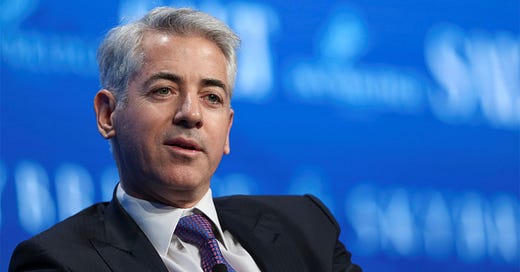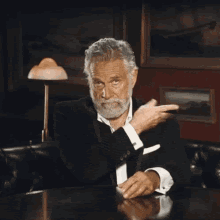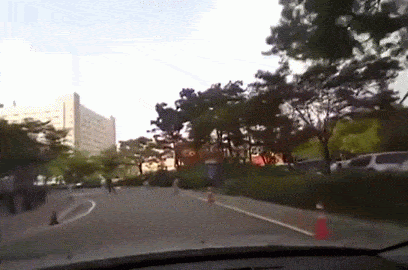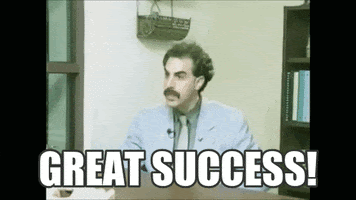In early March of this year, foreseeing the looming calamity of a global pandemic, Bill Ackman bought up $27 million of credit default swaps, betting against the ability of corporations to pay their debt.
His gamble resulted in a cool $2.6 billion, 10,000% profit.
Eight months later, he made the same bet.
Billy the Kid
Who the heck is Bill Ackman.
Mr. Ackman, despite his suspiciously youthful experience, is the storied hedge fund manager of Pershing Square Capital and disciple of our lord and saviour, Warren Buffett. Like Billy the Kid, Bill is notorious in the investing elite for “headhunting” specific companies, often through public short campaigns that become suspect in their methods.
In 2012, Ackman placed a gargantuan bet against Herbalife Nutrition. Herbalife walks like a pyramid scheme, talks like a pyramid scheme, and objectively is a pyramid scheme.
The nature of Herbalife drew Ackman’s skepticism, to the extent that he believed the company had no intrinsic value and would crash, netting him a huge gain. The situation got cast into the limelight when Carl Icahn, another billionaire investor, took the opposite stance.
The ensuing media battle of the billionaires devolved into name-calling and schoolyard tactics, so much so that a documentary was made.
Ackman eventually lost the battle due to Herbalife’s stock price soaring with Icahn’s support.
The cost: $1 billion.
Despite this weighty mistake, Billy the Kid learned his lesson. After his phoenix-inspired $2.6 billion profit, he reinvested these profits into the then-depreciated stock market and rode the bounce to another billion dollar gain.
$3.6 billion payday off of a $27 million premium - not too shabby. Brush that dirt off your shoulder, Billy.
What’s concerning is that he just made an identical bet at the beginning of November.
He quipped, “We’re in a treacherous time generally and what’s fascinating is the same bet we put on eight months ago is available on the same terms as if there had never been a fire and on the probability that the world is going to be fine.”
His bet, or short, is again predicting that corporations will be unable to pay their debts. With the onset of winter and rising case counts, businesses are facing the potential of further shutdowns.
Restaurants in four-season regions face depreciating customer volumes as the prospect of outdoor seating becomes impossible or unappealing. It’s estimated that 40% of restaurants could permanently close doors in Texas in the event of a second lockdown. The situation is worse in NYC, and likely worse in many other cities.
Ackman’s move against the market seems logical enough, but how does it actually work?
Shorting the Market
I mentioned earlier that Ackman bought credit default swaps as a bet against timely corporate debt repayment.
Credit default swaps are often described as insurance against debt defaults, but in reality they are more akin to gambling. While they offer protection against harmful economic situations, just like normal insurance, the tricky bit is timing, which makes it more of a bet than a foolproof hedge.
By way of analogy, imagine buying fire insurance for a house that you fully expect to burn down. The simple issue is that you don’t know when the house will burn down, and the premium you’re paying to maintain fire insurance is exceptionally expensive. (It sounds suspiciously like insurance fraud.)
It is much the same with credit default swaps. Let’s set the scene:
Company A has debt in the form of a bond (which is monetized debt).
The price of a bond does not represent its underlying value. If Company A has a bond that you can buy for $100, that price is assigned to it based on how creditworthy Company A is, and how likely it is to pay its debt back.
If it becomes apparent that Company A will default and not pay its debts, the price of the bond can plunge, let’s say from $100 to $5.
In this scenario, you buy a credit default swap (CDS) which gives you the right to sell the bond at $95 at any time in the next five years.
To maintain the right to exercise this, you pay a yearly premium, maybe $0.10.
Time passes, the world discovers Company A can’t pay its debt, and the price of its bond crashes to $5.
You snatch up the opportunity like a screaming eagle, exercise the terms of the CDS, and have the chump who sold you the CDS pay you $95 for a bond that’s now worth $5.
If you’ve seen The Big Short, a similar method was used by several groups of contrarian investors which net them billions in profit.
Our intrepid gunslinger Billy the Kid bet against $7.1 billion of bonds in March. One month’s premium payment was a whopping $27 million, which would have annualized to $324 million per year for the right to hold his credit default swaps.
I don’t recommend anyone ever try this. While it’s wildly lucrative in its success, the instances of failure are widespread but seldom told.
Ackman’s most recent bet is roughly 30% the size of his previous gamble in March, but would still net him a massive profit.
Stay tuned to see if the Kid strikes gold again.
Thanks for reading :)








